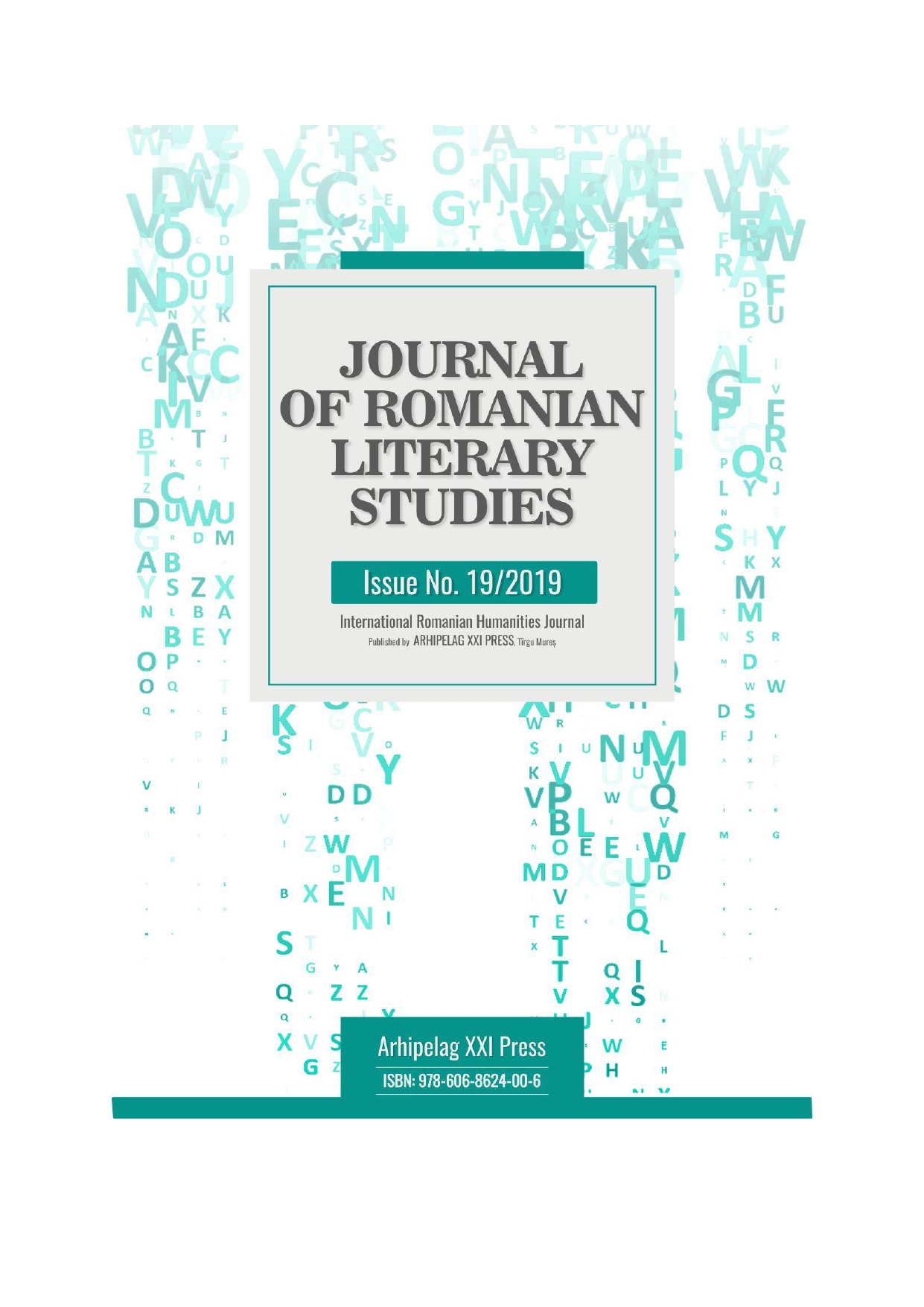ADRIAN PĂUNESCU. THE POETRY OF THE SIXTIES. CONTEXTS AND TYPOLOGIES
ADRIAN PĂUNESCU. THE POETRY OF THE SIXTIES. CONTEXTS AND TYPOLOGIES
Author(s): Manuela PinteaSubject(s): Poetry, Romanian Literature, Philology, Theory of Literature
Published by: Editura Arhipelag XXI
Keywords: poetry; context; generation; human condition; exuberance;
Summary/Abstract: The sixties are defined by a pure lyricism that preceedes an era of a fixed belief that was lacking the ideal substance. The 1960-1971 period is one of revival because the Romanian literature is resetting through a throwback to the past, to the old values.Therefore the aestethic doctrine acts on the grounds of the party propaganda, the poetry harnesses the anthems through which Lenin and Gheorghe Gheorghiu-Dej were celebrated. On this background, writers like Maria Banus or Mihai Beniuc bring odes, venerate construction work or accuse the "nobility" who were then in prison suffering verz heavily. There autors that the party relied on such as Mihai Beniuc, Victor Tulbure, Ion Brad, Dan Desliu, Eugen Jebeleanu, Veronica Porumbacu, Demonstene Botez, Zaharia Stancu, Eugen Barbu, Radu Cosasu, Constantin Chirita and others.The modern poetry is vibrant, metaphors come back, the language is define through connotations. This relatively "ideological defrost", a collocation that is frequently met in the specialized literature unleashes the existing pressure, the language gets rid of the rigid aspect imposed by the previous period. The fictitional release from the oppresive force somehow remakes the interwar ballance, through the attempt of recovering the old values. The lyricism get aestethic vibration, it shapes through metaphors the images become unusual, feelings and vibrations are harnessed. The poetry get confessive accents, the attitude becomes playful and we are looking at the existential show. The road opener for the sixties generation was Nicolae Labis, even if he passed away in 1956. The "Labis" consists of the existence and harnessing the belief that says that our own thinking can be expressed freely. Thus the unchained expressing of the subjectivity and the free manner of writing place Nicolae Labis on top of the new generation situated under his works spectrum.A significant impact on the grounds of a relatively hostile climate relates to the appearance, in 1960of a poetry volume "Sensul iubirii" signed by Nichita Stanescu. The severe regime accepts the young Nichita Stanescu's vibration, who announces since 1957 his poetic message, intentionally metaphorised, without any political involvement, especially socialistic. The criticists of those times considered the poet's attitude to be a coded language that had obvious echoes in that ideological constrainted present.After 1971, even if the regime led by Nicolae Ceausescu tried to stop the creative explosion, the literature couldn't be completely controlled. The literary climate acknowledged Nichita Stanescu path opener, a valuable poet, beside whom there were the poets of the sixties generation. In fact altogether with the differences of the thematic or stylistic, we are wittnesses of a poetical revival that's synonimous with the lyrical exuberance.In 1960 the generation itself was prolific, was prosperous being similar to a metapoetic lyricism. The poetry of the sixties generation is heterogeneous, defined by reflexitivity, ambiguity, suggestion, metaphore, features that build up "an exceptional generation" as Nicolae Manolescu called it. The seventh decade is marked by many literary debuts, as it follows : Nichita Stanescu - "Sensul iubirii", Cezar Baltag - "Comuna de aur", Florenta Albu - "Fara popas", Anghel Dumbravescu - "Fluviile viseayz oceanul", Grigore Hagiu - "Autoportret in august", Adrian Muntiu - "Vârsta cunoasterii", Constanta Buzea - "De pe pamânt", Victoria Ana Tausan - "Cadente", Ion Alexandru - "Cum sa va spun", Ana Blandiana - "Persoana intâia plural", Marin Sorescu - "Somgir printre poeti", Adrian Paunescu - "Ultrasentimente".
Journal: Journal of Romanian Literary Studies
- Issue Year: 2019
- Issue No: 19
- Page Range: 780-791
- Page Count: 12
- Language: Romanian

